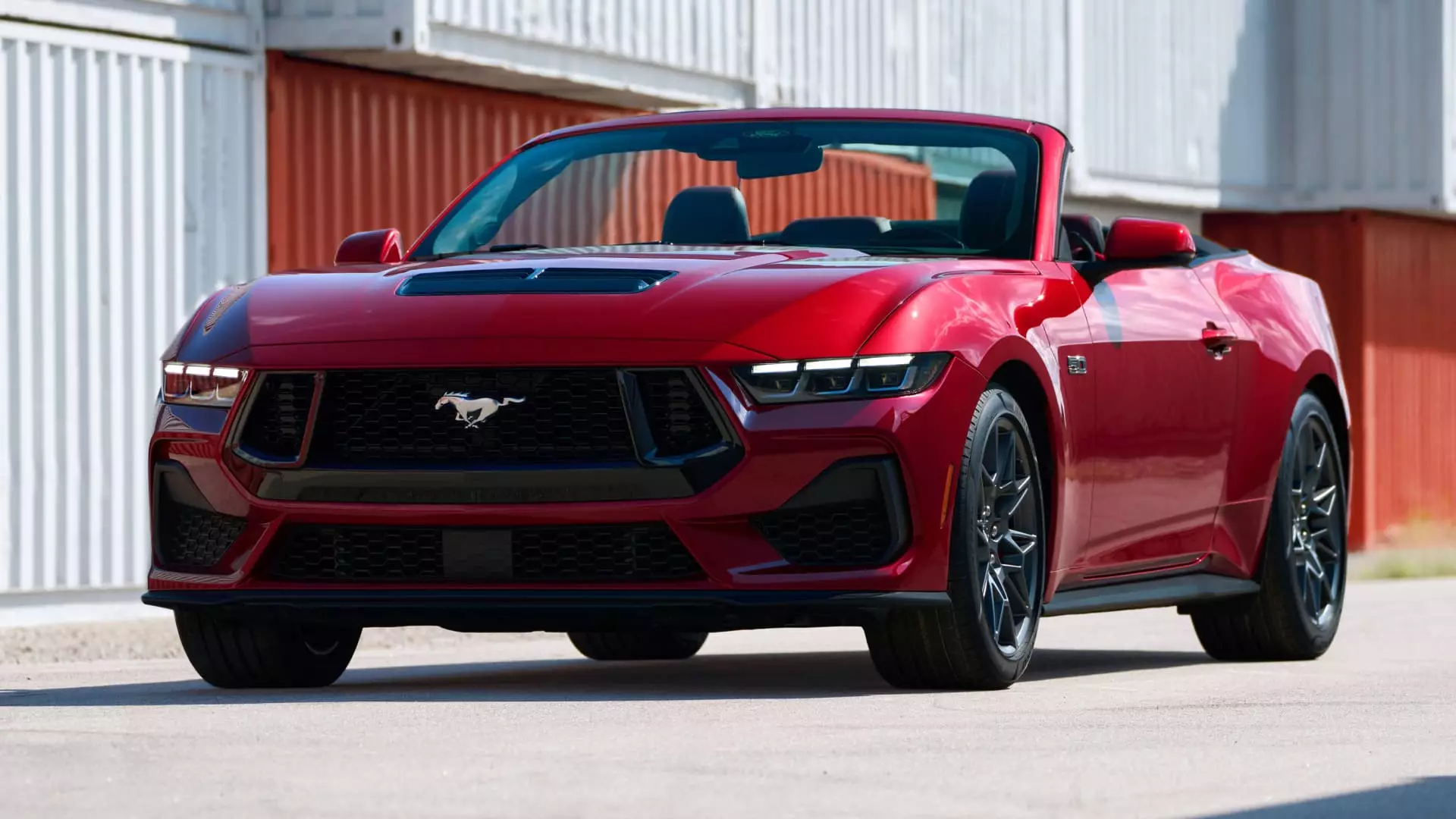Ford Motor is embracing the opportunity to grow Mustang sales as it remains the last American muscle car with a traditional V8 engine. With competitors like General Motors and Stellantis discontinuing production of their muscle cars, Ford sees an opening to cater to a dedicated fan base of gearheads who appreciate the performance and legacy of the V8 engine. The optimism surrounding Mustang’s future comes at a time when consumer demand is shifting away from two-door cars due to factors such as fuel economy standards and the rise of all-electric vehicles.
The recent exodus of major players in the muscle car market marks a significant shift in the industry. General Motors stopped producing the Chevrolet Camaro, while Stellantis ended production of the Dodge Challenger V8 in preparation for a new all-electric muscle car. This move reflects the evolving preferences of consumers towards more environmentally friendly and technologically advanced vehicles. Despite these changes, Ford remains committed to the Mustang as a staple in the American sports car segment.
Jeff Marentic, general manager of Ford Blue products, expressed excitement about the future of the Mustang and its potential for growth. With the 60th anniversary of the Mustang approaching, Ford has introduced new V8 models for the seventh-generation vehicle, such as the Dark Horse and Mustang GT. These models feature powerful 5.0-liter V8 engines that deliver impressive performance, with the Dark Horse generating up to 500 horsepower. Additionally, Ford has announced the upcoming release of the Mustang GTD with a supercharged 5.2-liter V8 engine expected to produce over 800 horsepower.
Ford’s ability to sustain sales of Mustang V8 models is attributed to its investment in engine efficiency and the early adoption of smaller, turbocharged four-cylinder engines. These efforts have contributed to a shift in consumer preferences, with nearly half of Mustang sales in the U.S. now coming from four-cylinder models. Ford’s strategic approach to offering a diverse range of engine options has helped the Mustang appeal to a broader audience while maintaining its identity as a true American sports car.
The seventh-generation Mustang, unveiled by Ford in September, has started shipping to international markets beyond North America. This expansion reflects Ford’s commitment to making the Mustang available in 85 countries across all continents except Antarctica. International sales have played a significant role in sustaining the Mustang’s production, particularly in regions where demand for two-door sports cars remains strong. With over 235,000 Mustangs registered globally since 2015, Ford continues to solidify the Mustang’s position as a revered and iconic vehicle worldwide.
As the automotive industry continues to evolve, Ford remains focused on the future of the Mustang. Despite challenges such as declining domestic sales of two-door cars, Ford is confident in the enduring appeal of the Mustang brand. While future product plans, including the possibility of a hybrid or all-electric version, remain undisclosed, Ford’s dedication to innovation and adaptation ensures that the Mustang will continue to captivate enthusiasts and drivers alike for years to come.

